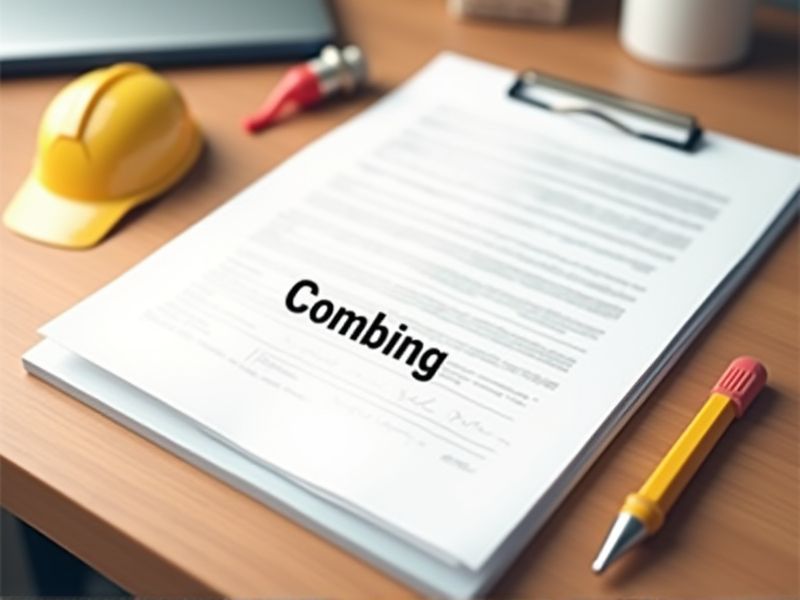
Plumbing contractors engage in complex systems requiring technical expertise and adherence to safety standards. Certifications ensure contractors possess the necessary knowledge and skills to handle various plumbing issues effectively and safely. Proper certification also helps in building credibility and trust with clients, showcasing a recognized standard of professionalism. To comply with industry and legal standards, here are key certifications necessary for plumbing contractors.
Plumbing Contractor License
A plumbing contractor license establishes credibility and ensures that the contractor meets local regulations and standards, which contributes to public trust. Regulations often require a license to ensure that contractors possess the necessary skills and knowledge to perform their work safely and effectively. Licensing helps protect consumers by offering a recourse should disputes or faulty work occur. Legal repercussions can arise for unlicensed work, including fines and the inability to obtain permits for projects.
Journeyman Plumber Certification
Journeyman Plumber Certification ensures a plumber possesses the necessary skills and knowledge for complex plumbing tasks, vital for maintaining safety and quality standards in a project. It acts as a benchmark, demonstrating that an individual has undergone rigorous training and has hands-on experience, which is crucial for a plumbing contractor to win client trust. In many regions, legal requirements stipulate that a plumbing contractor must hold a Journeyman Certification to perform specific tasks, ensuring compliance with local codes and regulations. Holding this certification often leads to better employment opportunities and higher earning potential, making it advantageous for any aspiring plumbing contractor.
Master Plumber Certification
Master Plumber Certification establishes credibility, ensuring clients trust the expertise and reliability of a plumbing contractor. Certification often leads to increased job opportunities, as many regions require it for legal compliance on complex projects. It signifies a contractor's proficiency in advanced plumbing techniques and adherence to safety standards. By holding this certification, contractors often command higher wages due to their verified skill level and knowledge.
Backflow Prevention Certification
Backflow prevention certification is essential for plumbing contractors due to regulatory compliance requirements that ensure public water systems remain uncontaminated. Contaminated water from backflows can lead to serious health risks, thus a certified contractor demonstrates expertise in safeguarding against such hazards. Insurance and liability concerns also favor certified professionals, as they mitigate potential financial and legal repercussions. Certification often leads to increased trust from clients, resulting in more business opportunities for contracting services.
Lead Safe Certification
Lead Safe Certification is crucial for plumbing contractors because lead exposure can lead to serious health issues, particularly in children. Certification ensures compliance with EPA regulations, minimizing legal risks for contractors. Certified contractors demonstrate a commitment to safety, which can enhance their reputation and trust with clients. By following lead-safe work practices, contractors protect both occupants and their workers from potential lead poisoning.
OSHA 30-Hour Construction Safety Training
The OSHA 30-Hour Construction Safety Training provides essential knowledge on mitigating job site hazards, which directly reduces the risk of accidents for plumbing contractors. Regulatory compliance is crucial, as failure to adhere could result in financial penalties and project delays. Understanding safety protocols enhances overall project efficiency and lessens the likelihood of costly insurance claims. A well-trained team fosters a safer work environment, which correlates with improved employee morale and productivity.
EPA Section 608 Certification
EPA Section 608 Certification is required for plumbing contractors working with certain types of refrigeration equipment. This certification ensures the contractor is trained to handle refrigerants safely, mitigating environmental harm. The regulations under Section 608 reduce the release of ozone-depleting substances when servicing or disposing of air conditioning and refrigeration systems. Achieving this certification signifies compliance with federal laws and strengthens the contractor's credibility and service trustworthiness.
WaterSense Certification
WaterSense certification ensures plumbing contractors are recognized for providing services that align with EPA standards for water efficiency. This certification helps homeowners and businesses save on water bills, as certified products and practices use 20% less water without compromising performance. It also gives plumbing contractors a competitive edge by highlighting their commitment to sustainability and resource conservation. The certification increases consumer trust and positions contractors as leaders in environmentally responsible practices.
Gas Pipe Installation Certification
Having a gas pipe installation certification ensures that the plumbing contractor possesses the necessary expertise to handle potentially hazardous gas lines safely. Proper certification guarantees compliance with local and national safety codes, reducing the risk of gas leaks and associated dangers. This credential enhances a contractor's credibility, increasing trust from clients and potential business opportunities. Insurance companies and authorities often require certified contractors to minimize liability and ensure regulatory compliance.
CPR/First Aid Certification
CPR/First Aid certification for a plumbing contractor enhances job site safety by preparing them to respond effectively in emergencies. Potential hazards in plumbing work, such as exposure to chemicals or physical injuries, increase the risk of accidents, making medical readiness essential. Certification fosters a safer work environment, contributing to compliance with health and safety regulations. Homeowners and employers may prefer professionals who are CPR/First Aid certified, seeing it as a commitment to safety and professionalism.
Summary
You can expect increased trust and credibility from clients when hiring a Plumbing Contractor with certifications. Certified contractors often deliver higher quality services, leading to satisfactory outcomes and fewer disputes. You may also benefit from their updated knowledge on industry standards and practices, reducing potential plumbing hazards. Enhanced reputation and client satisfaction often result in repeat business and positive referrals for certified plumbers.
